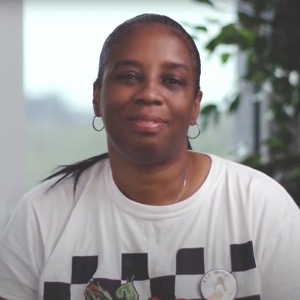Jack Gentry spent 37 years as a Baltimore City police officer, the last 17 years as a member of the SWAT team and a skilled negotiator. When he retired, Jack and his wife, Teresa—a nurse for 41 years—were looking forward to more time for their family and favorite pursuits.
Jack and Teresa’s plans changed drastically on April 8, 2013. Jack was seriously injured as a result of a medical error during an elective surgery to repair two bulging discs in his neck. Jack was paralyzed from the neck down.
The story of what happened next is unusual in U.S. health care and exemplifies how a determined patient working together with a dedicated physician and a health system that live their values of caring and transparency can move forward and make the best of a tragic, life-altering situation.
During the course of the operation, one of the implants that was used went too deep into the spine and actually hit the spinal cord. The surgeon immediately stopped and collected his thoughts. Next, he called a trusted colleague to verify his plan for completing the surgery. And what he did next made all the difference. He told Teresa what had happened, explained his revised plan for proceeding, and asked her permission. She agreed, and he completed the surgery.
The surgeon’s actions in that moment have been praised by leaders in quality and safety as exemplifying behavior that should be the norm in situations of patient harm: communicate honestly all you know when something goes wrong and avoid taking a defensive posture.
“I’ll never forget him saying, ‘things aren’t going well,’ ” Teresa said. “He admitted what happened. I know I thanked him for telling me.” She also told him, “I know this is very hard for you.”
“When you are on this side of it,” the surgeon said, “one of the greatest fears is that the family and patient will shun you as their provider. This is a tragedy and to provide good care, you need to feel welcomed in their life.” He has thanked the Gentrys for supporting him. He remained a part of Jack’s care team in recovery, and is a family friend.
Teresa was impressed by the doctor’s regular visits, ongoing involvement and obvious concern, and though she was working through difficult emotions, she knew that she and the surgeon were both looking out for Jack’s best interests.
Jack recalled waking up from surgery, learning he was paralyzed and then undergoing a battery of tests over the next few days to evaluate his condition.
“About the third day, I realized I was what they refer to as an incomplete quadriplegic. I said, ‘I’ve heard enough. I’ve had enough tests. What are we going to do to fix it?’ These were the cards I was dealt, and I had two choices: I could play the hand, or I could fold and go home. But I had spent a career as a fighter.”
Indeed, years earlier, he wanted to join the BCPD SWAT team and was told he was too old, at age 40, for the physical tests, the training and the demands of the job. Jack became even more determined to make the cut, and went on to graduate second in his class of 20 trainees.
“I pulled on that in my recovery,” he said. Jack would need intense, inpatient rehabilitation therapy, and he was determined to get to work as soon as he could to maximize his recovery potential.
MedStar offered to cover the cost of Jack’s intensive inpatient rehabilitation, beyond the two weeks his insurance would cover. Jack and Teresa gladly accepted, and altogether, Jack spent five months in the hospital. Otherwise, he would have been discharged to a skilled nursing home to continue therapy.
“That would have been close to a death knell for me because I wouldn’t have been able to get the intense PT that I needed,” Jack said.
“MedStar stepped up to the plate and from Day One said, ‘Stay as long as you need to. We’ve got it covered. Whatever you need when you leave the hospital, we’ve got it covered.’ They took a huge concern off my shoulders,” Jack said.
Jack credits the approach MedStar took with his being able to achieve significant recovery.
“I’ll be honest with you, without the doctor and MedStar’s approach to this, I wouldn’t be where I am today. We have settled our differences from a monetary point of view. We never filed suit. We worked it out, and we did it in two years versus five or six or seven years if we had gone to trial. And in the meantime, where would I be?”
“The litigation environment was always there,” Larry L. Smith, MedStar’s vice president for Risk Management, said. “But we agreed that we would deal with that later. It took two years to settle, because we wanted to make sure we were accounting for Jack’s full future needs. There was no need to rush.” When both parties decided it was time to work out the financial terms, they did so in a one-day mediation session
“One thing we can feel good about at MedStar is, whenever we have the opportunity, our first response is to pull resources together to help the team and to help the patient and family,” Smith said. “Our message to our staff is, ‘Do the right thing.’ ”
As a result of the open, compassionate way that his surgeon and MedStar responded, Jack and his wife, Teresa, have become vocal advocates for MedStar’s approach and the larger movement across the country in the way healthcare providers respond to unintended medical harm.







